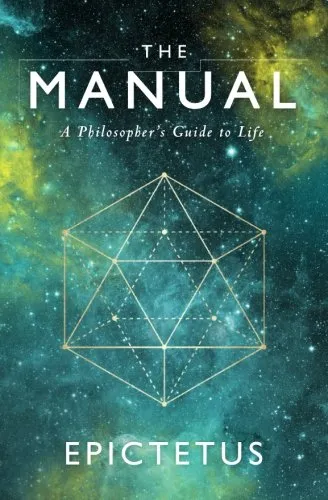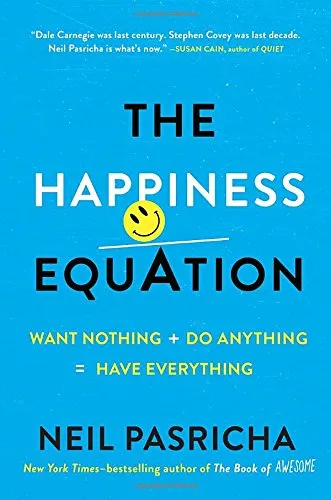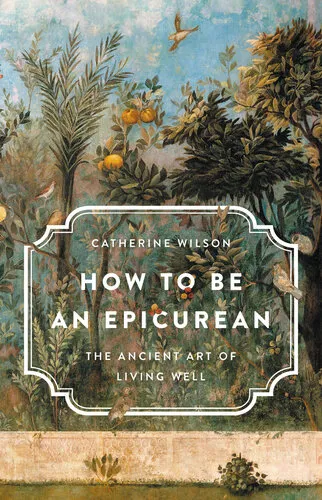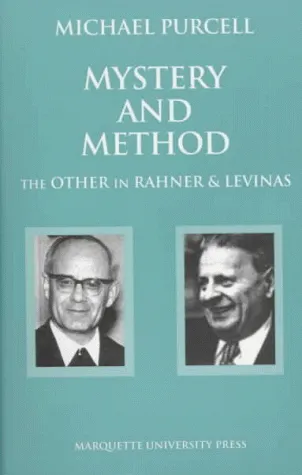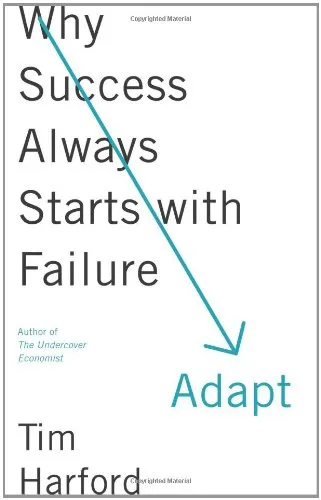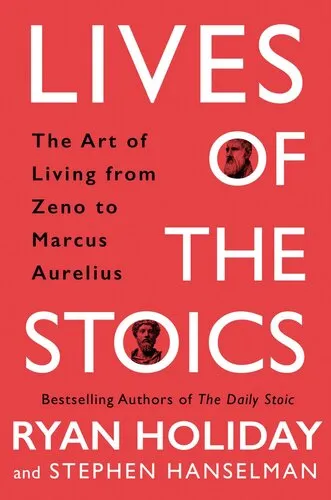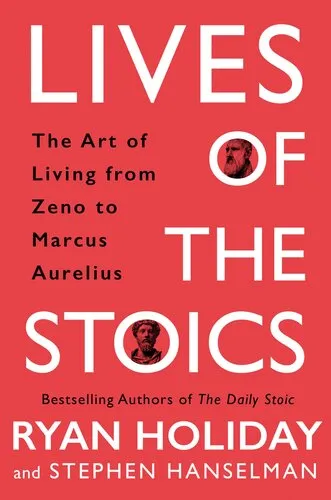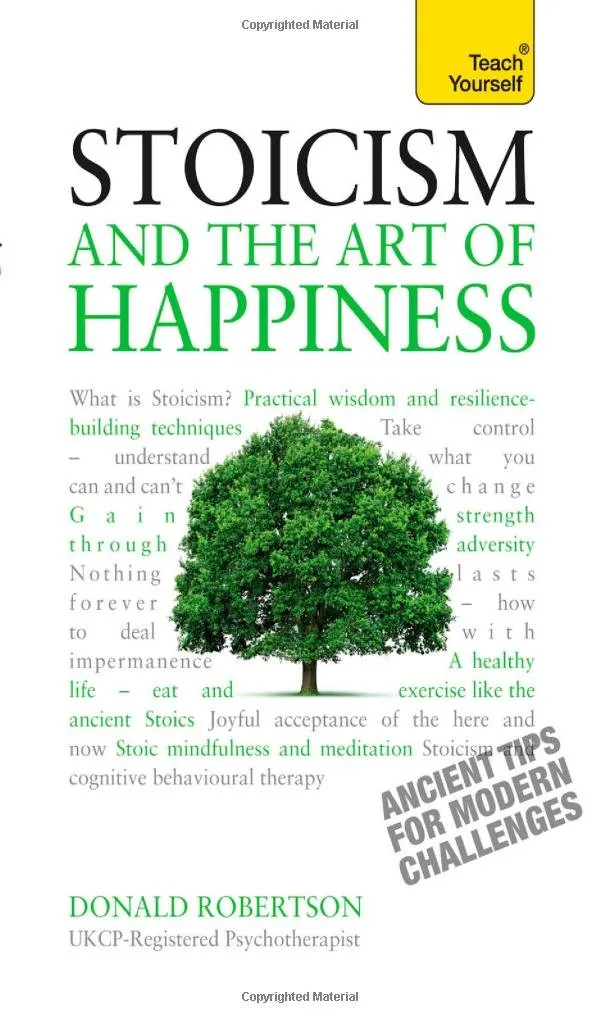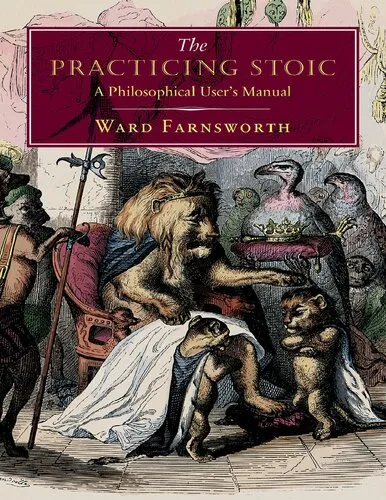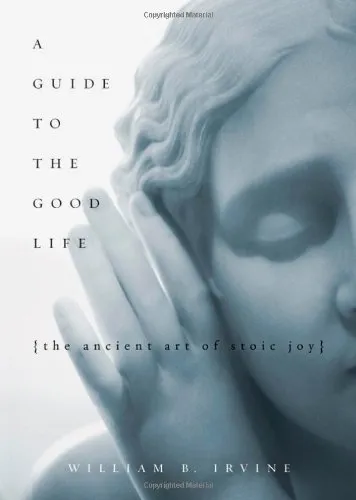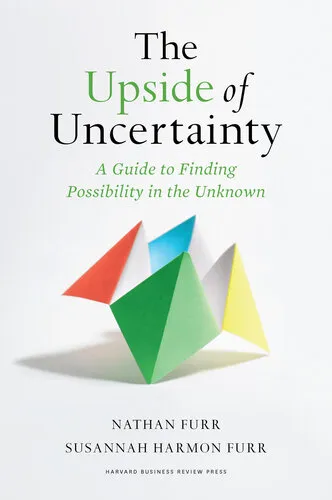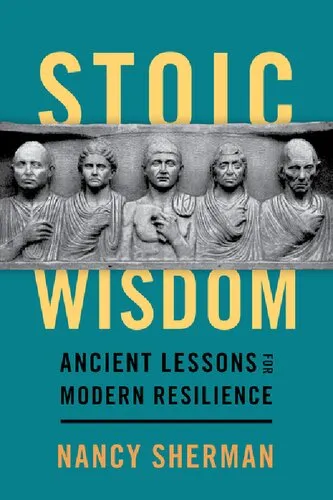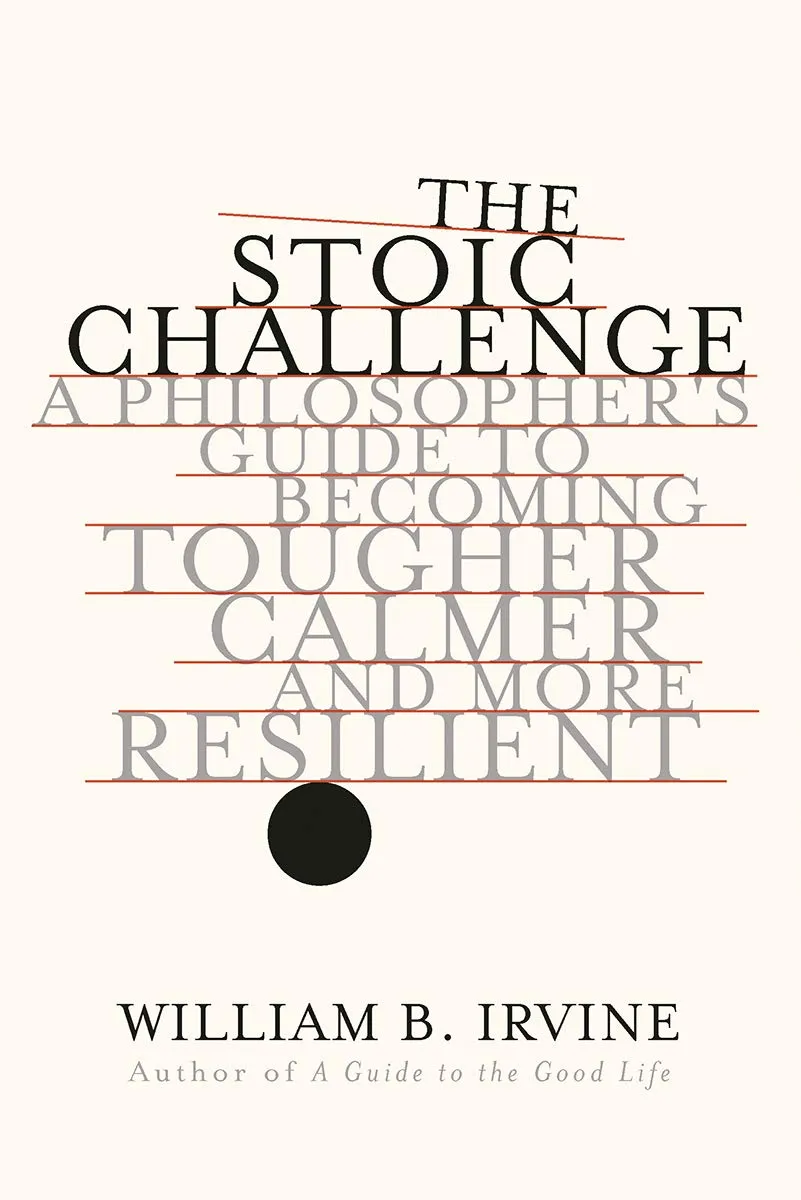The Manual: A Philosopher’s Guide to Life
4.4
بر اساس نظر کاربران

شما میتونید سوالاتتون در باره کتاب رو از هوش مصنوعیش بعد از ورود بپرسید
هر دانلود یا پرسش از هوش مصنوعی 2 امتیاز لازم دارد، برای بدست آوردن امتیاز رایگان، به صفحه ی راهنمای امتیازات سر بزنید و یک سری کار ارزشمند انجام بدینکتاب های مرتبط:
خلاصه تحلیلی کتاب
کتاب The Manual: A Philosopher’s Guide to Life نوشته Sam Torode بر اساس آموزههای Epictetus، فیلسوف برجسته مکتب رواقی، به زبانی ساده و روان بازآفرینی شده است. این اثر با نگاه فلسفهمحور، زندگی را به مثابه یک مسیر آگاهانه بررسی میکند که در آن انسان با تمرکز بر آنچه در اختیارش است، میتواند آرامش و آزادی درونی را بیابد.
مولف با بهرهگیری از اصول فلسفه رواقی، مفاهیم پیچیدهای چون خویشتنداری، پذیرش، و تمایز میان کنترل شخصی و عوامل بیرونی را به صورت فشرده و قابل درک ارائه کرده است. هیچگونه پیچیدگی زبانی بیثمر در متن به کار نرفته و هدف اصلی، رساندن خواننده به فهم عملی حکمت رواقی بوده است.
اطلاعات مربوط به سال انتشار کتاب در منابع معتبر یافت نشد، لذا «اطلاعات نامشخص» درج میشود. این امر نشان میدهد رویکرد ما به معرفی کتاب مبتنی بر صداقت و دوری از حدس و تخمین است.
نکات کلیدی و کاربردی
یکی از محورهای اصلی کتاب، تمرکز بر چیزهایی است که تحت کنترل ما قرار دارند. این ایده به خواننده میآموزد انرژی روانی خود را صرف حوزههای قابل تغییر کند و نسبت به موارد غیرقابل کنترل، نگرش پذیرش داشته باشد.
دیگر نکته مهم، تاکید بر «تمرین روزانه» است. کتاب یادآور میشود که فلسفه تنها نظریه نیست، بلکه باید آن را در زندگی روزمره تمرین کرد. این امر موجب رشد مهارتهای ذهنی و اخلاقی میشود و فرد را در برابر ناملایمات مقاوم میکند.
مولف بهطور عملی نشان داده که چگونه میتوان آموزههای فلسفه رواقی را در تصمیمگیریهای مهم، روابط انسانی، و حتی مدیریت احساسات به کار بست. این رویکرد عملی، کتاب را از صرفاً یک متن نظری به یک راهنمای واقعی تبدیل کرده است.
از دیگر نکات، تاکید بر مسئولیت شخصی و عدم وابستگی به تأیید یا نظر دیگران است که به خودباوری و آزادی فکری منجر میشود.
نقلقولهای ماندگار
کتاب حاوی عبارات کوتاه و پربار است که میتوانند راهنمای ابدی برای زندگی باشند. این نقلقولها اغلب ریشه در آموزههای اصیل فلسفه رواقی دارند و مخاطب را به تأمل عمیق دعوت میکنند.
اگر میخواهی آرام باشی، به جای تغییر جهان، خودت را تغییر بده. نامشخص
آزادی واقعی در رها کردن آن چیزی است که خارج از کنترل توست. نامشخص
چرا این کتاب اهمیت دارد
اهمیت کتاب The Manual: A Philosopher’s Guide to Life در قابلیت آن برای تبدیل فلسفه به ابزاری عملی در زندگی امروز است. در جهانی پرهیاهو و مملو از فشارهای روانی، آموزههای رواقی به عنوان سپری در برابر اضطراب و بیثباتی عمل میکنند.
برای پژوهشگران فلسفه، این کتاب نمونهای از بازآفرینی موفق متون کلاسیک به زبان معاصر است. برای کتابخوانهای جدی نیز، فرصتی برای لمس مستقیم حکمت عملی و بهرهبرداری از آن در زندگی روزمره فراهم میکند.
از منظر فرهنگی، این اثر پلی است میان دانش فلسفی قدیم و نیازهای ذهنی و اخلاقی انسان مدرن، و به همین دلیل یک منبع مطالعاتی ارزشمند است.
نتیجهگیری الهامبخش
کتاب The Manual: A Philosopher’s Guide to Life نه تنها یک متن فلسفی، بلکه نقشهای برای زیستن با آرامش، آزادی و پذیرش است. خواندن این کتاب میتواند نقطهی آغاز یک تغییر بنیادین در نحوهی نگاه به جهان و خود باشد.
اگر به دنبال ابزاری هستید تا فلسفه را از صفحات
Analytical Summary
The Manual: A Philosopher’s Guide to Life distills the enduring principles of Stoic philosophy into an accessible, modern format. Drawing from the concise wisdom of Epictetus, as adapted by Sam Torode, this text serves as an actionable guide for navigating challenges, cultivating inner strength, and aligning personal conduct with timeless virtues.
Rooted in the original Stoic traditions of ancient Greece and Rome, the book offers a lucid translation and interpretation intended for contemporary readers including academics, professionals, and serious students of philosophy. The synthesis presented here bridges the gap between historical philosophical language and the demands of everyday life in the 21st century.
Through a structured series of reflections, readers are encouraged to differentiate between what lies within their control and what does not—an essential Stoic principle. The work thereby functions both as a philosophical text and as a practical manual for resilience. Information about the precise publication year is unavailable due to the lack of a verified public source, but the content remains timeless in relevance.
Key Takeaways
The book’s core value lies in its clear, disciplined framework for living well and confronting adversity with composure. It translates ancient insights into pragmatic guidance suitable for modern intellectuals and professionals.
Key themes include the cultivation of self-mastery, recognition of external events beyond individual control, and the active practice of gratitude and rational reflection. The emphasis on practical philosophy ensures its usefulness across various domains—from academic inquiry to leadership and personal development.
Readers will find that the principles, though grounded in centuries-old thought, apply seamlessly to modern challenges such as workplace stress, decision-making under pressure, and maintaining ethical clarity amidst social complexity.
Memorable Quotes
“Happiness and freedom begin with a clear understanding of one principle: Some things are within our control, and some things are not.” Unknown
“Do not seek for events to happen as you wish, but wish for events to happen as they do, and your life will go smoothly.” Unknown
“No man is free who is not master of himself.” Unknown
Why This Book Matters
It matters because The Manual: A Philosopher’s Guide to Life bridges centuries of human thought, offering philosophical clarity that serves both moral and practical ambitions.
Unlike abstract treatises, its format and language make it a living document of wisdom—adaptable for personal journals, lecture notes, or leadership frameworks. Students and scholars will appreciate its fidelity to core Stoic ideas, while professionals can apply its lessons to decision-making, stress management, and ethical leadership.
By blending Stoic wisdom with practical philosophy, Sam Torode channels the original message of Epictetus in a way that resonates with contemporary sensibilities, speaking to those who seek intellectual rigor paired with applicable life strategies.
Inspiring Conclusion
The Manual: A Philosopher’s Guide to Life extends an invitation to embrace timeless wisdom as a living practice. By understanding and accepting the boundaries of personal control, the path to tranquility and purpose becomes clearer.
Serious readers, academics, and professionals will find in these pages a disciplined yet compassionate framework for engaging with life’s challenges. Let the ideas inspire reflection, and let discussions with peers deepen your grasp of Stoic principles in modern life.
Your next step is simple: read, absorb, and bring these lessons into daily action. Share the insights, discuss them within intellectual circles, and continue exploring how philosophy can shape not only thought but lived experience.
دانلود رایگان مستقیم
شما میتونید سوالاتتون در باره کتاب رو از هوش مصنوعیش بعد از ورود بپرسید
دسترسی به کتابها از طریق پلتفرمهای قانونی و کتابخانههای عمومی نه تنها از حقوق نویسندگان و ناشران حمایت میکند، بلکه به پایداری فرهنگ کتابخوانی نیز کمک میرساند. پیش از دانلود، لحظهای به بررسی این گزینهها فکر کنید.
این کتاب رو در پلتفرم های دیگه ببینید
WorldCat به شما کمک میکنه تا کتاب ها رو در کتابخانه های سراسر دنیا پیدا کنید
امتیازها، نظرات تخصصی و صحبت ها درباره کتاب را در Goodreads ببینید
کتابهای کمیاب یا دست دوم را در AbeBooks پیدا کنید و بخرید
1576
بازدید4.4
امتیاز0
نظر98%
رضایتنظرات:
4.4
بر اساس 0 نظر کاربران
Questions & Answers
Ask questions about this book or help others by answering
No questions yet. Be the first to ask!
